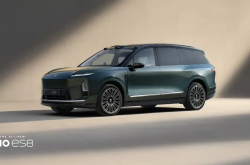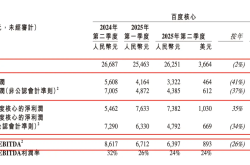The EU will impose a 38.1% tariff on Chinese electric vehicles, with strong opposition from multiple parties in politics and business
![]() 06/13 2024
06/13 2024
![]() 672
672
On June 12, the European Commission released the initial ruling disclosure of the anti-subsidy investigation on Chinese electric vehicles, proposing to impose countervailing duties on electric vehicles imported from China.
According to the announcement of the European Commission, the amount of tariffs imposed is divided into three categories: 17.4%, 20%, and 38.1% tariffs on the three sampled Chinese manufacturers BYD, Geely, and SAIC Motor Corporation respectively; 21% tariffs on other Chinese pure electric vehicle manufacturers participating in the investigation but not sampled; 38.1% tariffs on other Chinese pure electric vehicle manufacturers that do not cooperate with the investigation. In addition, Tesla cars imported from China may be subject to a separate tax rate.
The European Commission stated that if effective solutions cannot be reached through discussions with China, these temporary tariffs will be introduced from July 4.
As soon as the announcement was released, it sparked heated discussions in the industry, and various parties in politics and business also expressed their opinions, expressing strong opposition.
The spokesperson of the Chinese Ministry of Commerce stated that the European side ignores the facts and WTO rules, disregards China's strong opposition multiple times, ignores the appeals and dissuasion of multiple EU member governments and industries, and insists on going its own way. China is highly concerned and strongly dissatisfied with this. China's industry is deeply disappointed and resolutely opposed to this. The determination disclosed in the European ruling lacks factual and legal basis. The European Commission ignores the objective fact that the advantages of Chinese electric vehicles come from open competition, disregards WTO rules, disregards the full cooperation of Chinese related companies with the relevant investigation, artificially constructs and exaggerates the so-called "subsidy" projects, abuses the "available facts" rules, and imposes excessively high subsidy rates, which is a blatant act of protectionism, creating and escalating trade frictions, using the name of "maintaining fair competition" to "destroy fair competition", which is the greatest "unfairness". This move by the European side not only harms the legitimate rights and interests of China's electric vehicle industry, but also disrupts and distorts the global automotive industry supply chain, including the EU.
In a government statement, Nagy Marton, the Minister of National Economy of Hungary, said that Hungary disagreed with the EU's imposition of tariffs on Chinese electric vehicles. Nagy stated that protectionism is not a solution. On the contrary, cooperation and free market competition are what is needed.
SAIC Motor Corporation expressed deep concern and regret about this decision of the European Commission. As one of the world's leading automakers, SAIC Motor Corporation has been committed to serving global consumers through innovative and high-quality products. "We firmly believe that free trade and fair competition are the keys to promoting global economic prosperity and sustainable development. We are deeply disappointed with the European Commission's decision, which not only violates market economy principles and international trade rules, but may even have a significant adverse impact on the stability of the global automotive industry supply chain and Sino-European economic and trade cooperation." SAIC Motor Corporation sincerely hopes that the EU can seriously listen to the voices of Chinese and German automakers, resolutely avoid artificially setting trade barriers for new energy vehicles, and effectively maintain a fair competition market environment. "We believe that only through open dialogue and cooperation can we overcome challenges and achieve win-win results.
Mercedes-Benz Group stated that it has always supported free trade based on WTO rules, including the principle that all market participants should enjoy equal treatment. Free trade and fair competition will bring prosperity, growth, and innovation to all parties. If protectionism is allowed to rise, it will have a negative impact on all stakeholders.
Volkswagen Group expressed opposition to this decision of the European Commission, arguing that in the long run, imposing countervailing duties is not conducive to enhancing the competitiveness of the European automotive industry. The timing of the European Commission's decision is inappropriate. This decision is more harmful than beneficial to the European, especially the German, automotive industry. What Europe needs is a regulatory environment that promotes the transition of the automotive industry towards electrification and climate neutrality.
Zipse, the chairman of BMW Group, stated that the European Commission's proposed tariff increase on Chinese electric vehicles is a wrong decision. Zipse believes that imposing tariffs will hinder the development of European auto companies and also harm Europe's own interests. Trade protectionism is bound to trigger a chain reaction: responding to tariffs with tariffs and replacing cooperation with isolation. BMW Group firmly supports free trade.








